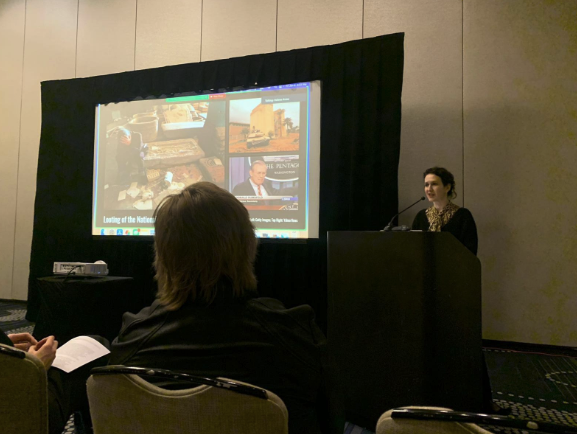Join us for this free webinar on February 6 at 10:00 AM New York
February 24, 2023, marks one year since Russian forces invaded Ukraine, resulting in the immense destruction of livelihoods, communities, and cultural heritage. As efforts to strip Ukraine of its cultural identity continue today, the Antiquities Coalition will convene cultural heritage experts on February 6 to reflect on and discuss strategies for preserving and protecting the country’s history.
Speakers include Damian Koropeckyj and Dr. Kate Harrell who recently co-authored a policy brief for the Antiquities Coalition’s Think Tank. In their brief, Harrell and Koropeckyj call on cultural heritage professionals to play an active part in the ongoing conversation about taking down cultural monuments (or monument removal), given the field’s wealth of knowledge regarding the care, conservation, documentation relocation, storage, and removal of cultural property. The authors provide a series of recommendations to support heritage professionals in developing such principles based on what has worked in the museum context, which have relevance not only for the situation in Ukraine but also around the world.
“Moving forward together as an international community of experts in heritage is particularly important in the face of issues as fraught as monumental removal,” Harrell and Koropeckyj write. “The policy recommendations that follow should be considered a call for action for both heritage workers and their executive organizational bodies.”
In addition to the destruction of monuments and sites, experts also report that the invasion represents the biggest art heist since the Nazis in World War II, with tens of thousands of pieces looted, including avant-garde oil paintings and Scythian gold. Looting and destruction of cultural heritage has huge implications for the war—in 2022, Dr. Christopher Jasparro warned in his co-authored policy brief for the AC Think Tank that historical propaganda and the exploitation of cultural heritage have become a central component of the Kremlin’s information warfare campaigns. Jasparro will join the webinar to provide an update on this situation, along with Dr. Samuel Hardy, a cultural property criminologist who is conducting research on Ukraine.
From recent conflicts in Iraq, Syria, Yemen, Afghanistan, and now, Ukraine, the international community has seen the catastrophic impact of war on cultural heritage. Ukrainians will face significant challenges in recovering their art and artifacts and rebuilding their communities. Law enforcement, governments, heritage professionals, and the art market can play a role in protecting Ukrainian heritage. The Antiquities Coalition looks forward to your participation in this important conversation.
Moderated by Tess Davis, Executive Director of the Antiquities Coalition.








